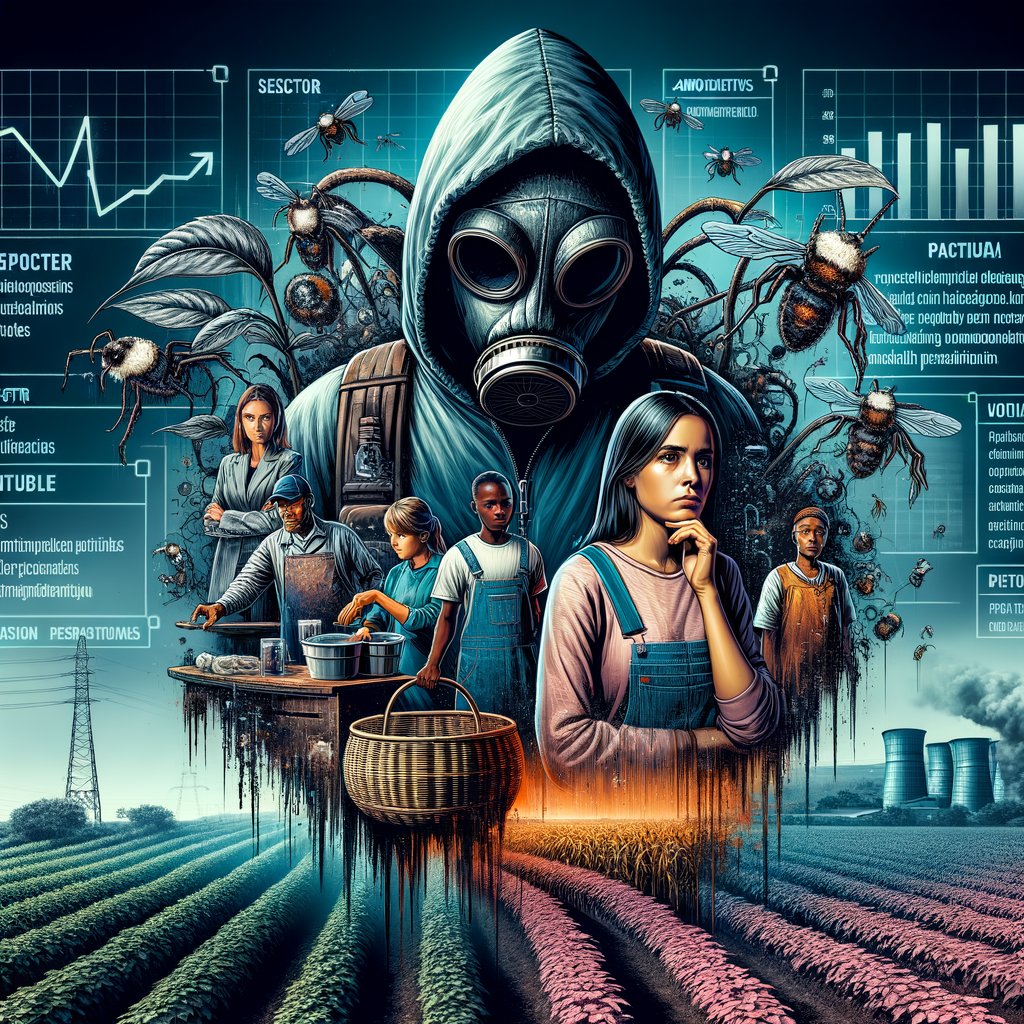Image created by AI
Urgent Call for Ban on Harmful Pesticides Amidst Farmworker Health Concerns
In a vital call to action issued from Cape Town, a prominent non-governmental organization, representing farmworkers, has urgently requested the immediate prohibition of hazardous pesticides, including Terbufos, which has been linked to severe health risks and fatalities, particularly among children.
The issue came into the spotlight following alarming reports from Tembisa, where black granules sold locally tested positive for Terbufos, a pesticide associated with several contamination incidents and deaths of minors. The NGO's demand highlights a growing concern over the continued utilization and legality of such pesticides in South Africa, substances that have been banned in the European Union due to their adverse health impacts.
Farmworkers, the primary victims of regular exposure to these chemicals, have expressed their concerns, emphasizing that their health risks should be met with appropriate healthcare provisions. Despite the increased awareness in the agricultural sector, as indicated by Agriculture Minister John Steenhuisen, there remains a significant disconnect between sector awareness and practical health facilitation, the latter being a responsibility designated to the Health Department.
Colette Solomon, Director of the Women on Farms Project, has pointed out the irony in the situation, stating, "There are numerous pesticides in South Africa that have been banned in the European Union but are still legal and imported into our country. Our government has continued to allow these harmful chemicals."
The call for action does not only demand the ban of dangerous substances like Terbufos but also seeks to highlight the need for systemic changes in how farmworker health is protected and managed. Solomon’s advocacy group is at the forefront, pushing for legislative changes that would not only eliminate dangerous pesticides but also ensure the health and safety of all agricultural workers, who are integral to the backbone of South Africa’s economy.
This development poses critical questions about the balance of import policies, health regulations, and the rights of workers in South Africa. As the situation unfolds, the health of many hangs in the balance, reliant on the swift actions of governmental and health institutions.





